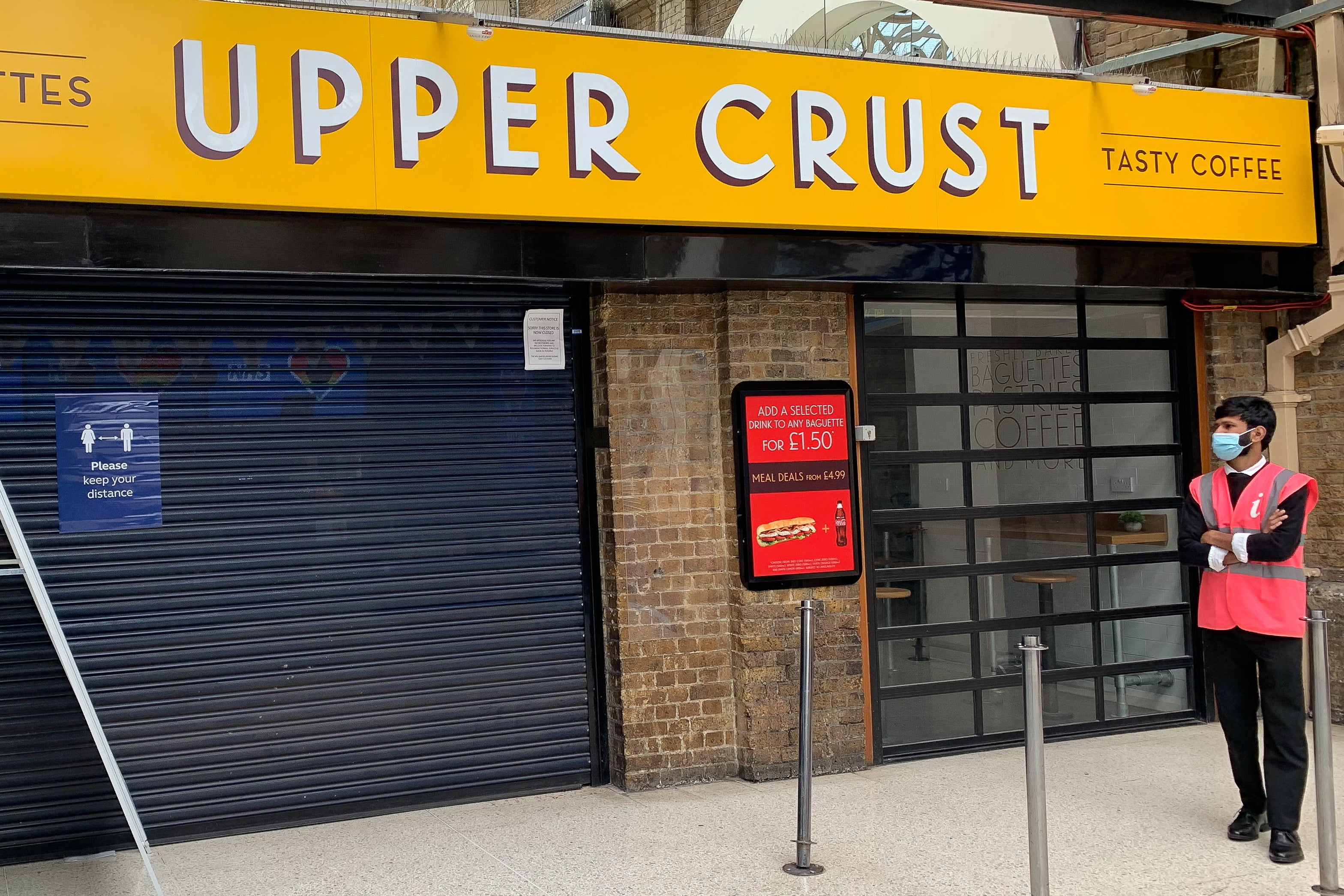Upper Crust owner extends losses as pandemic restrictions bite
SSP grew losses to £299.7 million in the six months to the end of March but said reopenings remain promising.

Your support helps us to tell the story
From reproductive rights to climate change to Big Tech, The Independent is on the ground when the story is developing. Whether it's investigating the financials of Elon Musk's pro-Trump PAC or producing our latest documentary, 'The A Word', which shines a light on the American women fighting for reproductive rights, we know how important it is to parse out the facts from the messaging.
At such a critical moment in US history, we need reporters on the ground. Your donation allows us to keep sending journalists to speak to both sides of the story.
The Independent is trusted by Americans across the entire political spectrum. And unlike many other quality news outlets, we choose not to lock Americans out of our reporting and analysis with paywalls. We believe quality journalism should be available to everyone, paid for by those who can afford it.
Your support makes all the difference.Upper Crust owner SSP has warned it does not expect to recover to pre-pandemic levels for another three years as it sunk to a heavy loss.
The group – whose food and drink sites are based at airports and railway stations – saw pre-tax losses for the six months to March 31 hit £299.7 million, up from £34.3 million a year ago.
Revenues also fell dramatically – down 79% against pre-pandemic levels to £256.7 million.
The company was heavily hit due to lockdowns and decimated passenger numbers in travel markets.
But bosses said trading had begun turning around as sites reopen and passenger numbers improve, particularly in the UK and US, with sales in the first week of June down around 70% on 2019 levels.
They added that renewed travel restrictions, largely in India and Thailand were continuing to weigh on the group and it expects third-quarter sales to be down around 75% on 2019.
SSP said it remained financially robust following a rights issue in April, alongside extensions to bank facilities until 2024 and the waiver and amendments of covenants with lenders.
However, net debt is now at £2 billion under new accounting rules which include rent liabilities. On a comparable basis with older ones, it was £840 million in March 2021 compared with £692 million in September 2020.
Since the end of March, the company has reopened 250 units, taking the total number of sites open to around 1,150.
It added: “If current trends continue, we expect to have 1,200-1,500 units open over the summer, in line with the recovery in demand.”
Chief executive Simon Smith said: “The recovery in domestic and leisure travel has now begun in a number of our territories, and our teams are busy reopening units in line with passenger demand.
“Over the past year we’ve strengthened our competitive advantages and created a more flexible operating model.
“We have a strong balance sheet and can see many opportunities to accelerate growth as the market recovers and to deliver sustainable growth for the benefit of all our stakeholders.”